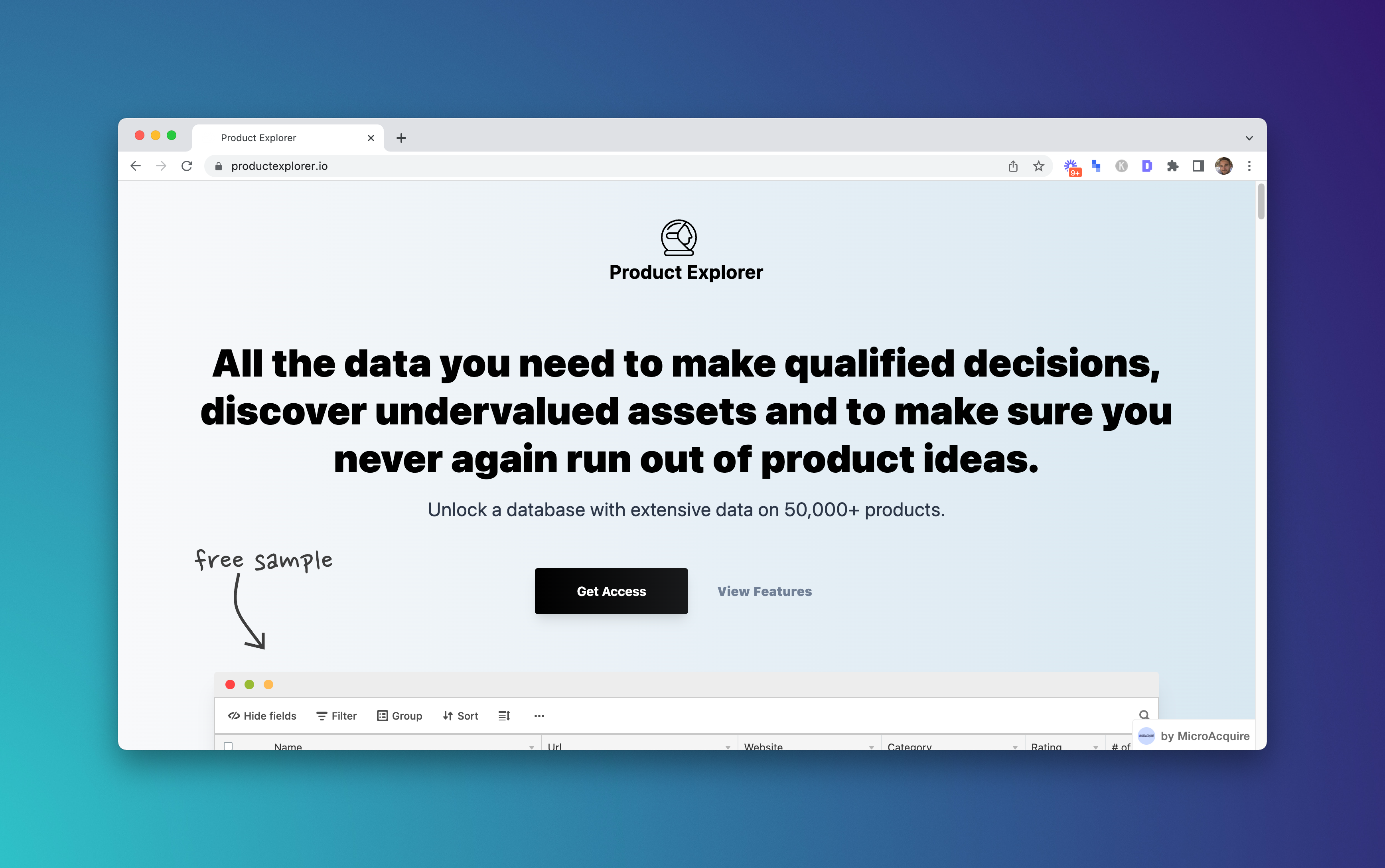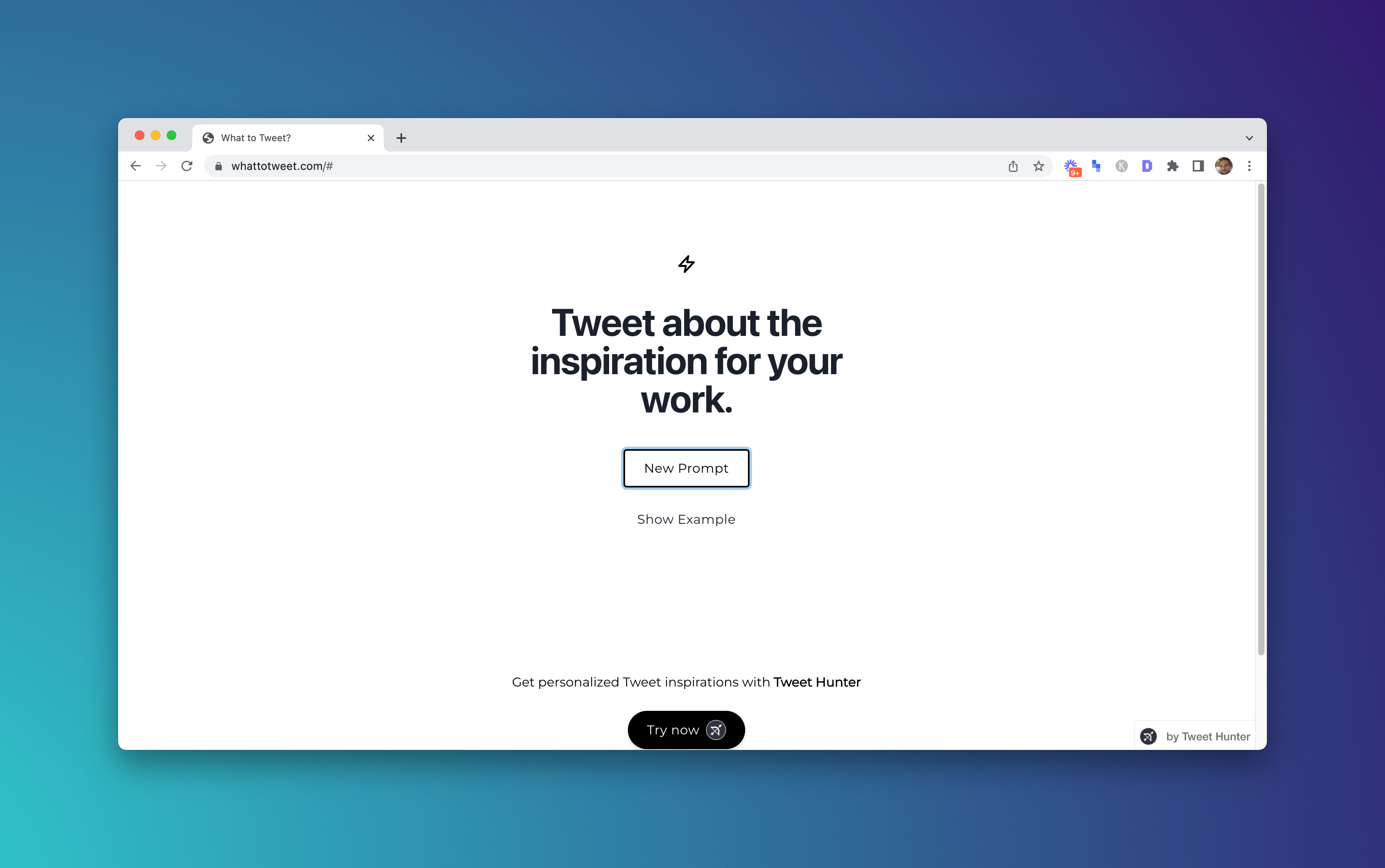⭐️ You don't need anyone's permission to succeed
All of my big successes had one thing in common:
I acted without asking for permission.
This tiny mindset shift unlocked a whole new world of opportunities for me.
It all started with the following observations:
- There are people who always seek permission for everything. You know, the ones who even ask “Hey can I ask you a question?”.
- And on the other hand, we have people who operate permissionless. Their maxim is that it’s easier to ask for forgiveness than permission.
Growing up in Germany, I was always a permission-first guy. But over the past two years, I’ve slowly come to realize that operating permissionless is the success secret no matter what your goals are.
Here’s just one example.
A while back I got an idea by listening to the My First Million podcast.
Guest Andrew Wilkinson explained that there are all these cool products that are launched on Product Hunt, but most of them fizzle since they are often launched by developers without strong marketing skills
So people should start buying them and market them properly.
This gave me the idea to offer a database that makes it easier for people to find interesting products they can acquire.
Now I of course could’ve tried reaching out to Andrew, asking him what he thinks of the idea.
He probably wouldn’t have replied and this would have discouraged me from pursuing the idea further. Instead, I simply built an MVP, got a simple landing page online and launched the project.

This got Andrew’s attention:
This is *awesome*. If you need a business idea, go here: https://t.co/QZSgDEfQFg
— Andrew Wilkinson (@awilkinson) October 30, 2020
The launch was a success and I later sold the project to Micro Acquire founder Andrew Gazdecki.
None of this would’ve happened with a permission-first mindset.
Here’s another story.
Two years ago I decided to learn how to use Twitter more effectively. One of my biggest challenges was figuring out what to tweet. So I was super excited when I discovered an article by Josh Spector titled “What To Tweet: 21 Unique and Useful Twitter Post Ideas”.
The list is awesome but I realized that it wasn’t actionable enough for me. This gave me the idea to turn Josh’s post it into a mini tool.

The tool would show random prompt every time you opened the page. I could’ve tried to get Josh’s permission before doing anything.
But instead, I decided to act immediately. I simply built the tool (which took me less than 90 minutes) and launched it.
The launch was a huge success. It ended up as # 2 Product of the Day on Product Hunt and dozens of people reached out telling me that it solved a huge pain point for them.
I later sold it to the Tweet Hunter founders. Again, chances are high that none of this would’ve happened if I had asked for permission first.
At the very least, I would’ve lost a lot of momentum.
There are far more situations than most people realize where you have the choice to ask for permission or just do the thing you want to do.
Operating permissionless is almost always the better choice.
Lots of startup founders seek permission from VCs before they start executing.
But if you just build an MVP and start talking to VCs once you have some traction, you’ll will be a much better position to negotiate. And maybe your idea simply doesn’t have the potential VCs are looking for but nevertheless could lead to a business that comfortably pays for your family’s living expenses.
By seeking permission from the VC crowd you’re robbing yourself of all these opportunities.
Many founders nowadays believe they have to build an audience before they can really start building their business. They believe in Seth Godin’s permission marketing gospel and try to build a huge Twitter following or email list before launching their product.
This is oftentimes a waste of time and founders would be better off by directly reaching out to prospective customers using cold emails, the quintessential type of permissionless marketing.
The best way to apply for a job nowadays is by demonstrating what you can do for the company directly. You don’t need anyone’s permission to create a redesign of their landing page, to create a detailed research report on opportunities they’re overlooking, or to suggest ways how someone can improve their workflow.
AirPods Redesign pic.twitter.com/hqSsejB2lz
— Fabian Arbor (@fabianarbor) February 23, 2021
Jack Butcher calls this the permissionless apprenticeship approach.
It’s what kickstarted his entire business. Without asking for permission, he started creating illustrations around other people’s quotes and ideas who then helped spread the word.
Know your ABZs:
— jckbtchr (@jackbutcher) December 29, 2020
A: Where you are
B: Your next step
Z: Your end goal
— @ShaanVP pic.twitter.com/xcHjlAOof2
You can write detailed profiles without asking for permission. Polina is doing an incredible job at this and it worked nicely for me as well.
Big mahalo 🙏🏾🌺 to @polina_marinova for her Profile Dossier on my 56th favorite subject - myself.
— Dwayne Johnson (@TheRock) December 24, 2020
I really enjoyed this read and think you all will too - especially the parts about my arrests as a teen for theft, fighting and check fraud 🤦🏽♂️
Enjoy 👇🏾👇🏾https://t.co/o6BPP0oUbb
This is an amazing way to connect with people you admire who most likely would ignore your request before you put in the work.
But the most harmful way how the permission-first mindset manifests is that it tricks people into attending university.
They want to be entrepreneurs and decide to enroll in business classes.
They’re passionate about understanding how nature works, and sign up to study physics.
Most people still believe they need a universities’ permission to learn something seriously. This couldn’t be further from the truth.
Universities are for the most part a gigantic waste of time and money. Professors are hired based research merits and have little incentives to deliver good lectures.
And on top of that, the traditional lecture system is completely outdated and ineffective.
“Traditionally taught science and mathematics teach little except obedience.” - Sanjoy Mahajan
So if you’re serious about learning a complex topic like physics you’re much better off by doing it on your own terms.
This way you can actually choose the textbooks that speak a language you can understand and absorb them at your own pace.
You won’t have to waste tens of hours every week with pointless homework problems.
All the material is readily available online and you will get much better answers to your questions on a platform like StackExchange than from your average professor.
Heck, you can also simply send cold emails to experts or show up in their office during office hours.
Most will be happy to answer your questions even if you’re not an official student. You could even attend classes, make friends and network at university unenrolled.
I got a phd in physics but I’m now convinced I could’ve learned a lot more in less time by doing it on my own terms.
This is why I decided two years ago to pursue a completely permissionless “Bootstrap MBA” instead of enrolling in any official program to learn entrepreneurship.
I wish I had realized this earlier. But it’s never too late to change your approach.
No matter what your goal is, you can simply start doing it.
You don’t need anyone’s permission.
PS: If you're interested in following my journey, sign up below:
